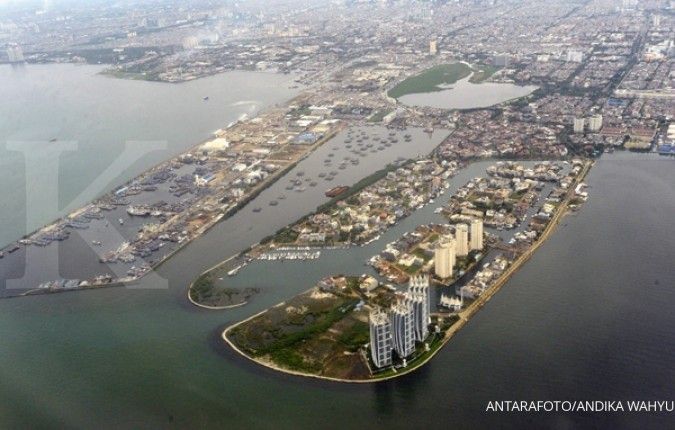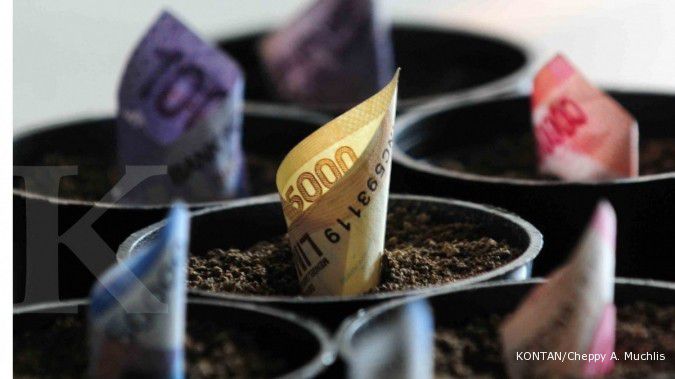JAKARTA. The House of Representatives decided on Wednesday to push cut Indonesia’s fiscal deficit for next year, a move which would enable President-elect Joko “Jokowi” Widodo’s administration to reduce bond sales financing the budget gap.
Lawmakers from the House Budget Committee have approved the fiscal deficit — the gap between state revenues and spending — of 2.21 percent of gross domestic product (GDP), compared to the 2.32 percent proposed by President Susilo Bambang Yudhoyono last month.
The lower fiscal deficit in the 2015 State Budget, slated to be forwarded for final approval to a House plenary session next week, was mainly driven by lawmakers’ demands to revise up the country’s oil lifting target to 900,000 barrels of oil per day (bpd) from 845,000 previously.
The higher oil-lifting assumption consequently boosts the state revenue collection target in 2015, narrowing the fiscal gap.
Andin Hadiyanto, head of the Finance Ministry’s fiscal agency, said with the lower-than-targeted fiscal deficit, the incoming government would be able to reduce the bonds issuance target by Rp 27.9 trillion for next year.
“Certainly it is safer to have a lower fiscal deficit, which consequently may boost the market’s confidence in our economic sustainability,” he told reporters after meeting with lawmakers.
“International rating agencies have always highlighted our fiscal sustainability, which is normally used as an indicator of their assessment of our sovereign credit rating,” explained Andin.
Nevertheless, he warned about risks that could push the fiscal deficit upward.
He said the oil production target of 900,000 bpd might require “hard efforts” from the Upstream Oil and Gas Regulatory Task Force (SKKMigas). Indonesia’s oil production currently stands at around 788,000 bpd.
There was also a risk of US interest rate rises, which could trigger capital outflows exerting pressure on the rupiah, the assumption for which was set at 11,900 per US dollar next year, Andin warned.
Indonesia has a law forbidding the government’s fiscal deficit to breach 3 percent of GDP. The rule would push down government debt levels to 26 percent by the end of next year from 95 percent of GDP in 2000, with such fiscal sustainability helping the country win investment- grade status from Moody’s Investors Service and Fitch Ratings.
At 26 percent, Indonesia’s debt-to-GDP ratio is among the lowest in the world, compared to 49 percent in India, 51 percent in the Philippines and 53 percent in Malaysia. In developed countries, such as the US, the UK and France, the ratio is more than 90 percent, while in Japan it stands at around 190 percent.
Nevertheless, the rating agencies have recently expressed concern over the recent deterioration in Indonesia’s fiscal position, as the country has registered primary fiscal deficits since 2012, following more than a decade of consecutive primary surplus.
“The outgoing government’s inability to broaden the tax base and improve revenue performance has contributed to the erosion of Indonesia’s fiscal position,” noted Christian de Guzman, a senior analyst with Moody’s. “Indonesia’s next president faces a widening budget deficit, which poses a threat to rules that have anchored fiscal policy over the past decade.”
Even if Jokowi hiked fuel prices next year, the fiscal deficit could still soar to 2.6 percent of GDP, according to Santitarn Sathiratai, an economist with Credit Suisse.
He explained that moving the fuel price adjustment could give additional fiscal space up to 1 percent of GDP, but the new government might have to spend around 0.4 percent on compensation packages for the poor, as well as 0.4 percent on additional infrastructure spending. (Satria Sambijantoro)
/2014/09/16/898451574.jpg)












